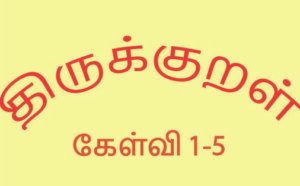The Five Elements of Learning to Read
I have a question for you. What do you think a child needs to learn to read?
I bet you thought of phonics as soon as I mentioned the word ‘read!’ Yes, phonics is a critical player in learning to read, but do you know that it is not the only skill needed?
There are five elements in learning to read:
They are
- Phonemic Awareness
- Phonics
- Fluency
- Vocabulary
- Comprehension
In today’s episode, I will give a brief introduction about each of these and how they help a child learning to read, but later on in this series, I will explore these elements in greater detail.
Phonemic awareness is all about understanding sounds in the spoken language, i.e., how individual sounds make up the words we speak. Phonemic awareness comes before phonics. We are not talking about letters or letter sounds just yet. It is all about the sounds in our spoken language.
Phonics is a set of rules that shows how letters and sounds interact to build words and make meaning. Since we can see how the letter sounds come together to create a word, for instance, c/a/t/, it is easy to understand why parents think their children must learn this skill right away. But we have to consider what is developmentally appropriate and is there something else a two or three-year-old needs to learn first?
The third element, fluency, is the child’s ability to read words quickly, accurately, and without effort. Say your child is just beginning to read and sees the word ‘cat.’ What does your child do? Your child reads out the letters c-a-t and then matches the letters to the corresponding sounds /c/ /a/ /t/. The last step is to blend it all together to say ‘cat. That’s what the beginning reader does. What does the fluent reader do? When fluent readers look at the word, they recognize it immediately as ‘cat.’ They don’t read the letters c-a-t or blend the sounds /c/ /a/ /t/. Word recognition becomes automatic. To develop this automatic recognition of words, children must have strong phonemic awareness and phonics skills.
Vocabulary is the knowledge of words and how the reader uses this knowledge to gain comprehension. To have an extensive vocabulary, a child must have strong background knowledge. That means a child must have lots of exposure to different aspects of their environment. There is no ‘sit down and copy or trace the words.’ It is all about experiences. That sounds strange, doesn’t it? Why is this important? When your child has a variety of exposures, they hear many words used to describe these. Then, when they come across a new word in print, they connect it to something they already know. Let’s suppose your child is reading about different types of transportation. When they come across the word vehicle, if you tell them, ‘Oh, it’s a vehicle,” it doesn’t make much sense to them. But then you say, “A car, a bus, or a van are examples of vehicles,” you have connected the new word to something they already know. That is how exposure to different experiences helps your child develop a strong vocabulary and, as you will see later, their comprehension as well!
The fifth element in learning to read is comprehension. When readers understand the meaning of what they’ve read, we say they have comprehended the text. Phonemic awareness, phonics, fluency, and vocabulary are foundation skills, while comprehension is the outcome of the reading process. It means that the reader understands what the word or sentence means, but that’s not all. The reader can also identify the main idea of the passage, other details like what happened first or the cause and effect, using different strategies. There is a reason that teachers work a lot on comprehension. You see, the text in a book presents information explicitly (openly) or implicitly (indirectly). The reader must understand what is said directly in the book. But they must also understand the hidden information in the passage.
What do you do to find out if your child has understood what they read? I bet you ask questions. Right! We often ask questions about the information given in the book, like “How many dwarfs were there in the story Snow White?” Your child will answer seven because it is there in the title itself. But not all authors give all the information openly like that. They hide information in the book. The reader has to be a detective and use the clues in the book to understand what the author is trying to tell them. So, a beginning reader must learn to use different strategies to understand all the information in the text—that which is explicit or open and that which is implicit or hidden.
It may sound a bit complicated, but you know what? It’s a lot of fun when your child realizes that they have the skills to understand what they read. Next week we’ll look at phonemic awareness skills, the first element in learning to read.
Click here to read more:
What parents need to know about the research on how kids learn to read.





